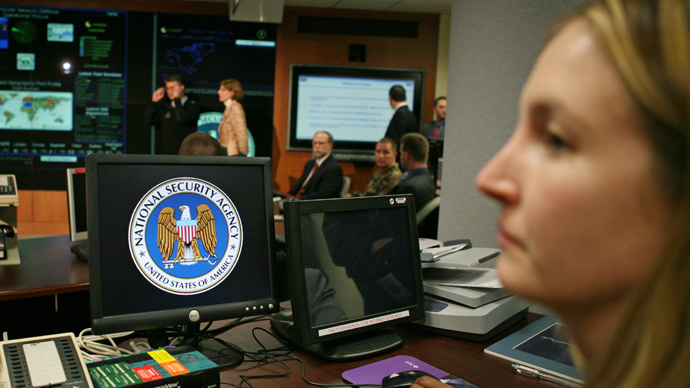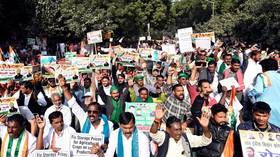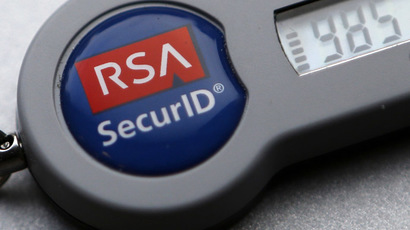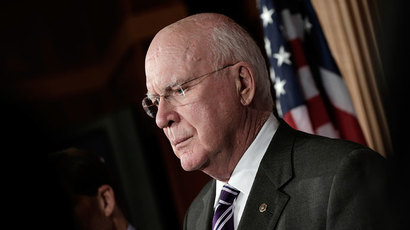US govt attempts to block lawsuit against NSA

Lawyers from the Justice Department have urged a judge to halt a lawsuit against the NSA’s spy programs. This comes after the judge’s previous ruling that the NSA’s collection of metadata was likely unconstitutional and "almost Orwellian" in nature.
On Wednesday, government lawyers appealed to US District Court Judge Richard Leon to put court proceedings on hold for two lawsuits against the NSA filed by conservative legal activist, Larry Klayman.
Klayman has challenged the legality of the NSA’s programs that collect and store the metadata of American citizens on a massive scale.
The lawyers argued that if the lawsuits were allowed to go further, they would lead to the disclosure of classified information which would represent a “significant risk” to national security.
“Plaintiffs have made clear their intentions to seek discovery of this kind of still-classified information, concerning targets and subjects, participating providers, and other operational details of the challenged NSA intelligence programs,” said the motion.
In this way, the lawyers want the lawsuits suspended until the US Court of Appeals for the District of Columbia Circuit hears an appeal of Judge Leon’s December-16 ruling that the NSA’s gathering of massive amounts of metadata probably went against the constitution. The US Department of Defense appealed the ruling on January 3.
In last month’s hearing, Judge Leon ruled that the gathering of metadata was likely in breach of the fourth amendment, in the first significant legal setback for the government security agency. Leon noted that the US government has failed to cite a single example of when the analysis of metadata has prevented a potential terrorist attack.
“I have serious doubts about the efficacy of the metadata collection program as a means of conducting time-sensitive investigations in cases involving imminent threats of terrorism,” wrote Leon in his ruling. He added that the plaintiffs were able to show that their privacy interests “outweighed” the NSA’s harvesting of their personal data.
“The almost-Orwellian technology that enables the government to store and analyze the phone metadata of every telephone user in the United States is unlike anything that could have been conceived in 1979,” wrote Leon, referring to a 1979 court decision that ruled Americans do not have a Fourth Amendment privacy right to phone numbers they call.
Since former CIA contractor-turned whistleblower, Edward Snowden, revealed classified data on the NSA’s spying antics last year, the American government has justified its espionage programs as being in the interests of national security and the fight against terrorism.
Following Judge Leon’s ruling in December, District Judge William Pauley in Manhattan ruled that the NSA’s spy programs were legal in a separate lawsuit lodged by the American Civil Liberties Union. Pauley described the surveillance programs as the “counter-punch” to terrorism and said "this blunt tool only works because it collects everything."
“Technology allowed Al-Qaeda to operate decentralized and plot international terrorist attacks remotely. The bulk telephony metadata collection program represents the government's counter-punch,” Judge Pauley concluded.













